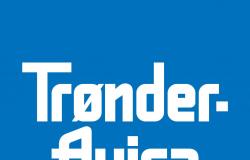Debate posts: Børre Skiaker, general secretary of the Royal Norwegian Automobile Club (KNA)
After KNA, together with Ola Borten Moe (Sp), criticized the cost management of some of the projects associated with the urban growth agreements, the debate has raged. KNA welcomes public transport initiatives and cycle paths, but cost management must be better and the distribution of the burden fairer.

Børre Skiaker. Photo: KNA
KNA recently wrote a feature on NRK together with Storting representative Ola Borten Moe about the city growth agreements. These have contributed to good coordination between different levels of administration in order to carry out major transport developments in and around the big cities. At the same time, the agreements have grown in scope, and for motorists it feels as if there is a mismatch between those who prioritize and those who have to pay.
The starting point in urban growth agreements, where the state contributes significant funds to major transport developments, is fully supported by KNA. However, what we question is when such a large part of the cost overruns is passed on to motorists. When those who order the collective investment only pay a fraction of the cost, there is reason to question whether the cost management will be sound and whether the financing model can act as a cost driver.
In 2023, the passing revenue from the toll stations was NOK 14.8 billion
When cycle paths that were initially supposed to cost NOK 200-350 million end up costing well over NOK 2 billion, it is problematic. When the Fornebubanen, which in 2011 was estimated to cost NOK 4.5 billion, can now exceed NOK 31 billion, it is more than problematic, also for motorists who have to pick up large parts of the bill through the toll ring.
The toll rings around the big cities are becoming increasingly expensive. In 2023, the passing revenue from the toll stations was NOK 14.8 billion. According to AutoPASS’ preliminary annual report, 61 percent of this came from the toll rings around the cities, which corresponds to NOK 9 billion. For those who depend on the car, this has major consequences and contributes to increased class differences. Tolls are fundamentally anti-social because they do not take into account how much people earn.
These days the politicians are renegotiating Oslo Package 3, and urban growth agreements have been announced in several cities. If these agreements are to maintain the necessary legitimacy, a culture of responsibility must be established where there is less of a mismatch between who spends money and who picks up the bill. A system in which public actors at several levels of administration squander other people’s money cannot be exempt from criticism.
A public debate about large cost overruns where motorists pick up the bill is important – both for politicians, motorists and for us as a society.
Børre Skiaker
Secretary General of the Royal Norwegian Automobile Club (KNA)





